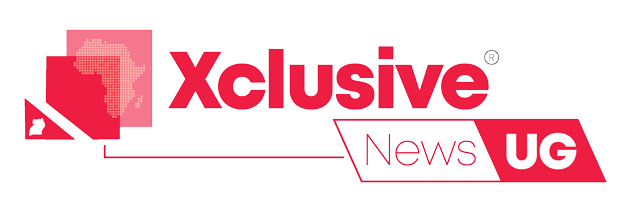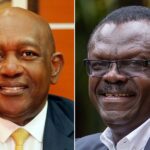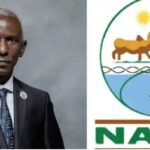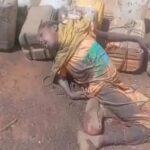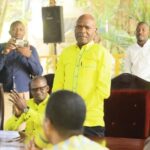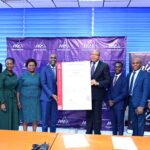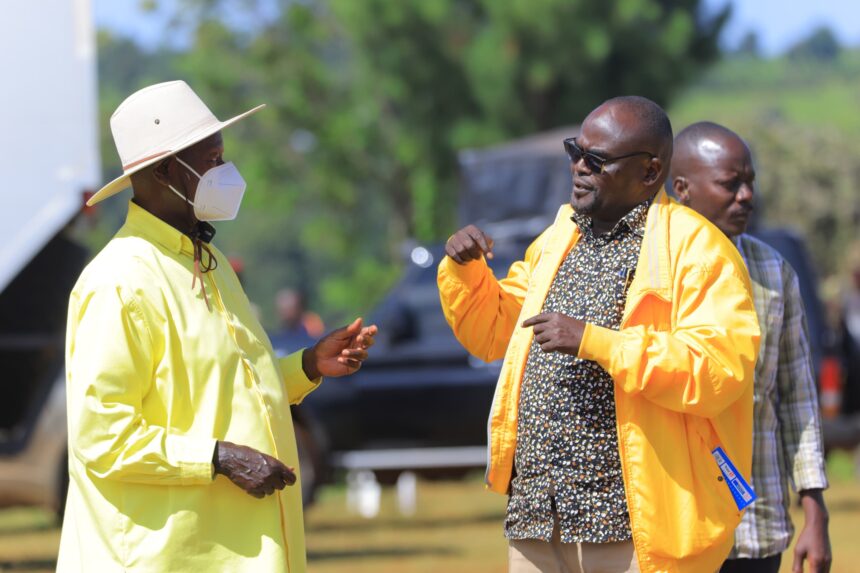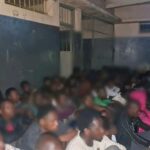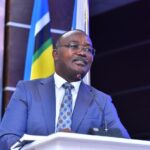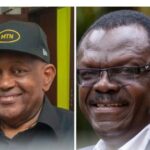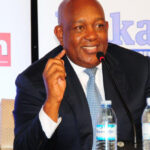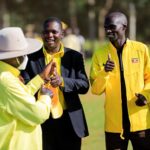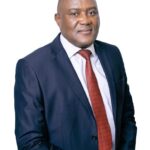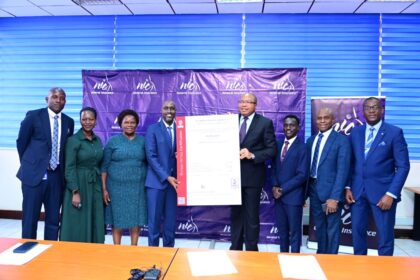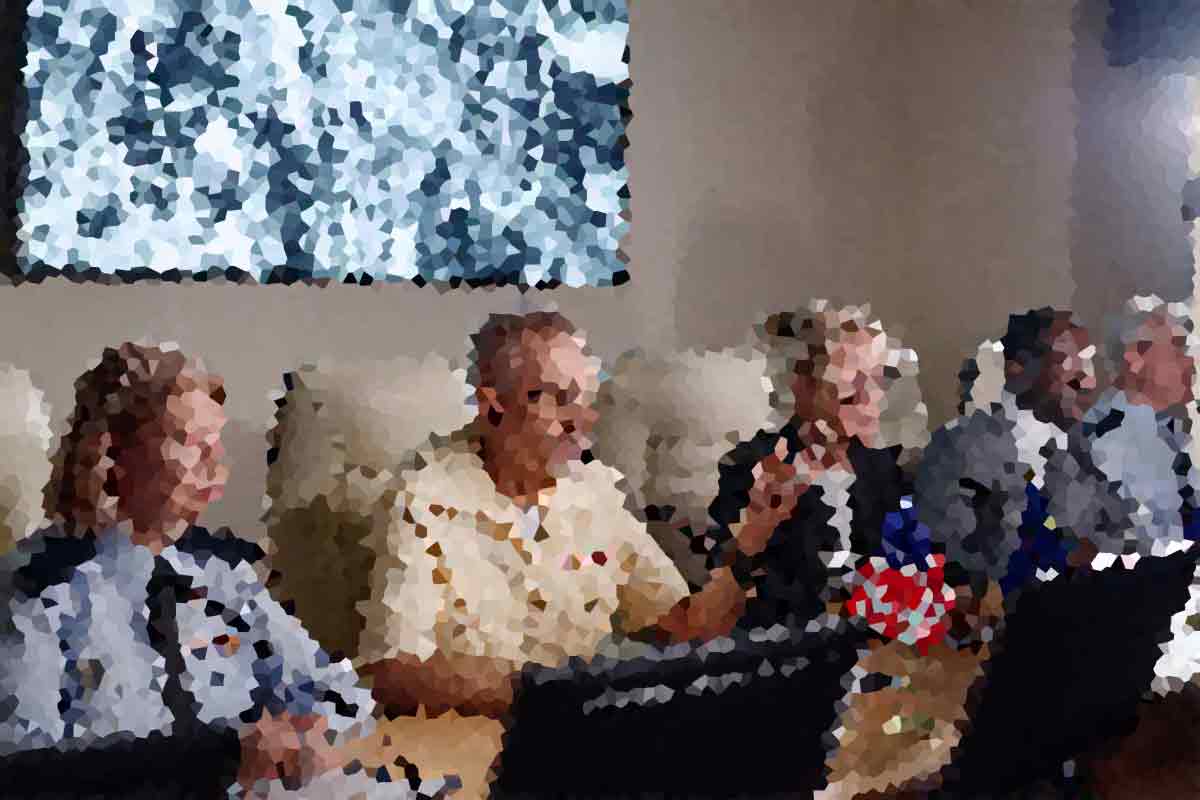By Our Reporter
Kween – President Yoweri Museveni has ordered auditors to investigate alleged misuse of government funds in Kween District, saying corruption that robs communities of services will not be tolerated.
Speaking to thousands of NRM supporters at a campaign rally in Kween on Tuesday, Museveni said he had received reports that money meant for local projects — notably the Shs1.3 billion sent annually for road maintenance — was not being properly used and that he would send his auditor to establish the facts.
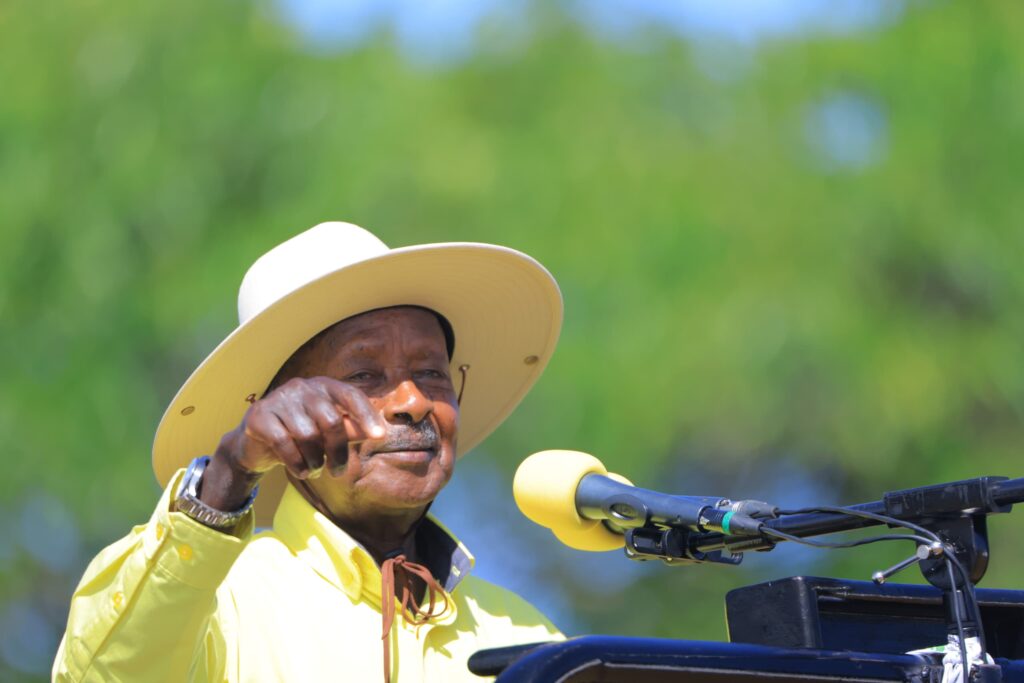
“I will send my auditor here to find out who is misusing government money,” he said, adding that leaders must be the ones to fight corruption and be held accountable by the people who elected them.
The President’s comments followed concerns raised by both local leaders and Rt. Hon. Anita Among, Speaker of Parliament and NRM Second National Vice Chairperson (Female).
Among had warned that the road maintenance funds were being poorly utilized, while NRM Kween chairperson Chemutai Mongusho Stephen urged stronger oversight and transparency in the use of public resources.
While stressing accountability, Museveni also reiterated a bundle of development promises for the Sebei sub-region.
He pledged an industrial park and a public university for Sebei, saying the university would follow the government policy of establishing a public university per zone — a rollout already seen in Lango, Teso and Acholi.
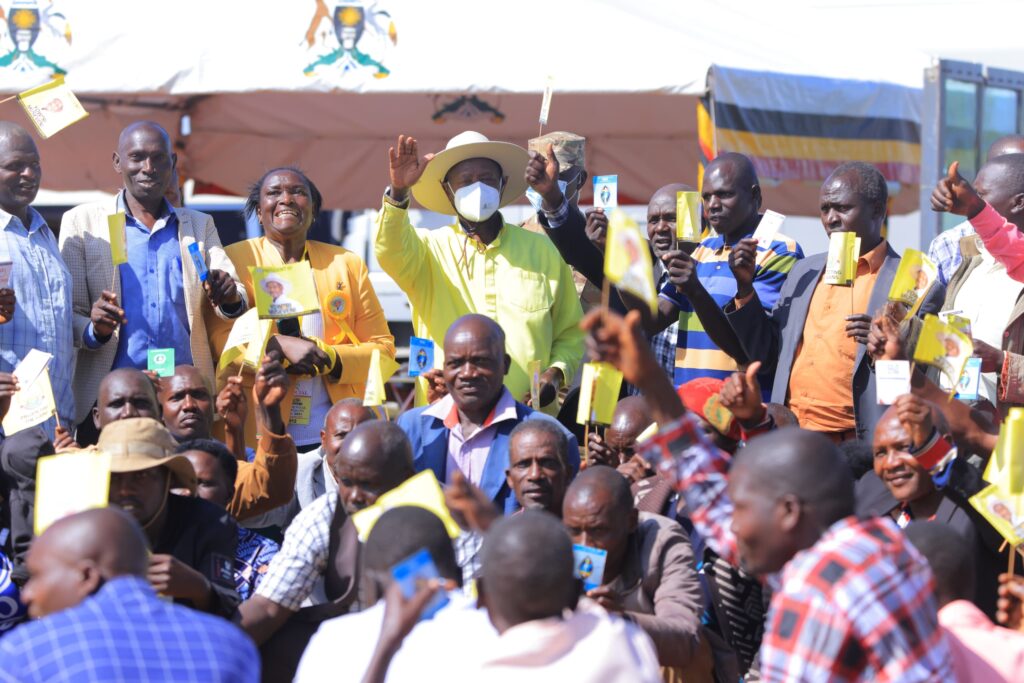
“It is already our policy to have a public university per zone, and we shall have one in Sebei.
It’s just a question of budgeting,” he said. He thanked the people of Sebei for allocating 500 acres for the industrial park and said the facility would be modeled on the Mbale Industrial Park, which he noted employs more than 12,000 people.
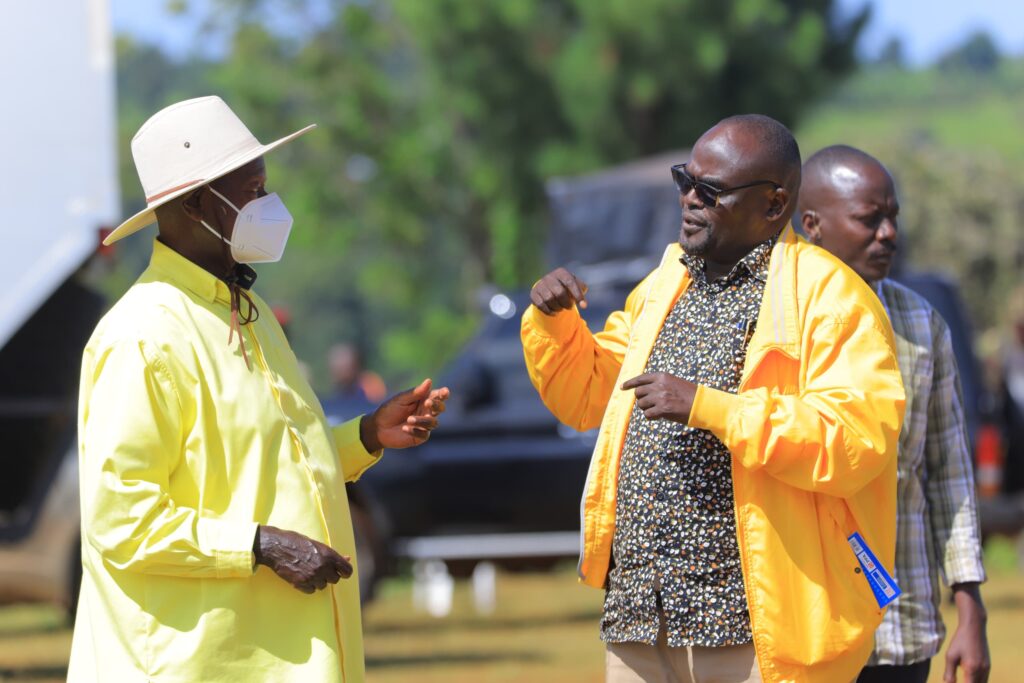
Museveni used the example to encourage residents to embrace commercial farming and other wealth-creation initiatives, noting that jobs follow wealth generated by agriculture, manufacturing, services and ICT.On environmental protection, Museveni warned against encroachment into sensitive ecosystems and said the boundary demarcation for Mount Elgon National Park — which he learned was incomplete — would be finalized and guided by scientific assessment rather than opinion. He described mountains, wetlands and forests as the “blood supply” of the country and said they must be protected to avoid future ecological damage.
Addressing the problem of deadly landslides in the mountainous Sebei area, the President announced plans to convene a scientific conference in Sebei to find sustainable ways for people to live safely on steep slopes.
He said experts would advise on soil stability, tree cover and safer settlement practices.
“This mountain is really steep… we shall have a conference here with experts to advise how people can live safely,” he said, stressing the role of trees in holding soil and preventing disasters.
To assist victims of the recent mudslides, Museveni said the government had purchased land for resettlement and promised each displaced household two acres of land and Shs10 million to support relocation and housing construction.
He also said the government would study compensation for families evicted from forest reserves to ensure fairness.
Responding to past cattle rustling, the President said parts of Sebei that were affected would be included in the government’s ongoing restocking programme — the same initiative in which families in Teso, Lango and Acholi receive livestock assistance.
He explained that the restocking will extend to neighbouring areas like Abim and Bulambuli and selected parts of Sebei.
Museveni reviewed what he called the NRM’s seven main contributions since 1986 — including peace, development, wealth creation, job creation and education — and urged people to take advantage of government programmes such as the Parish Development Model (PDM) and Emyooga. He encouraged adoption of the Four-Acre Model for commercial farming as a pathway to household wealth, noting that infrastructure alone (roads, schools) must translate into productive livelihoods.
On education, the President reiterated that free primary education was introduced by the NRM in 1996 but said its impact had been undermined by some school administrators who demand illegal fees. He said government skilling hubs — where youth receive six months of free practical training — were an alternative route to equip young people with productive skills.
The NRM Vice Chairperson for Eastern Region Hon. Calvin Echodu, thanked the President for supporting families who lost loved ones in recent mudslides and for ongoing development interventions in the region.
